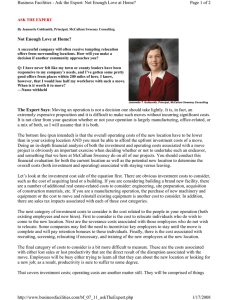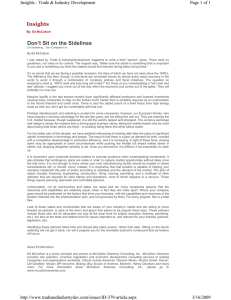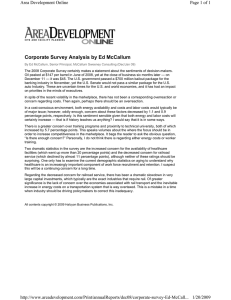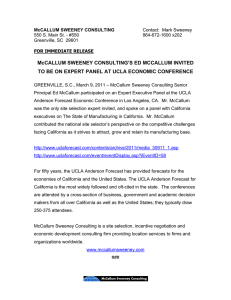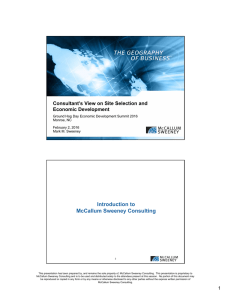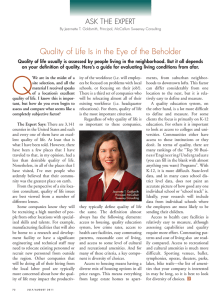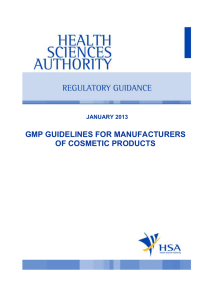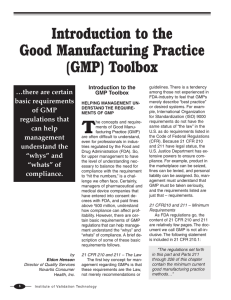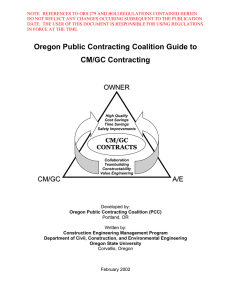Reframing the Question Page 1 of 2
advertisement
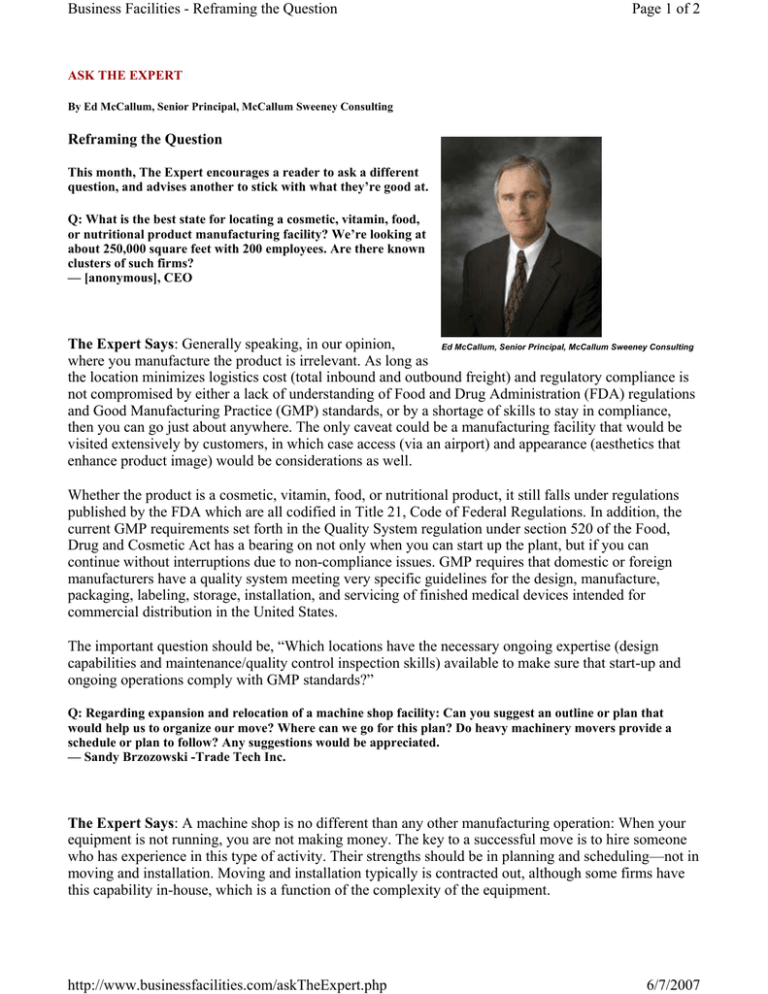
Business Facilities - Reframing the Question Page 1 of 2 ASK THE EXPERT By Ed McCallum, Senior Principal, McCallum Sweeney Consulting Reframing the Question This month, The Expert encourages a reader to ask a different question, and advises another to stick with what they’re good at. Q: What is the best state for locating a cosmetic, vitamin, food, or nutritional product manufacturing facility? We’re looking at about 250,000 square feet with 200 employees. Are there known clusters of such firms? — [anonymous], CEO The Expert Says: Generally speaking, in our opinion, Ed McCallum, Senior Principal, McCallum Sweeney Consulting where you manufacture the product is irrelevant. As long as the location minimizes logistics cost (total inbound and outbound freight) and regulatory compliance is not compromised by either a lack of understanding of Food and Drug Administration (FDA) regulations and Good Manufacturing Practice (GMP) standards, or by a shortage of skills to stay in compliance, then you can go just about anywhere. The only caveat could be a manufacturing facility that would be visited extensively by customers, in which case access (via an airport) and appearance (aesthetics that enhance product image) would be considerations as well. Whether the product is a cosmetic, vitamin, food, or nutritional product, it still falls under regulations published by the FDA which are all codified in Title 21, Code of Federal Regulations. In addition, the current GMP requirements set forth in the Quality System regulation under section 520 of the Food, Drug and Cosmetic Act has a bearing on not only when you can start up the plant, but if you can continue without interruptions due to non-compliance issues. GMP requires that domestic or foreign manufacturers have a quality system meeting very specific guidelines for the design, manufacture, packaging, labeling, storage, installation, and servicing of finished medical devices intended for commercial distribution in the United States. The important question should be, “Which locations have the necessary ongoing expertise (design capabilities and maintenance/quality control inspection skills) available to make sure that start-up and ongoing operations comply with GMP standards?” Q: Regarding expansion and relocation of a machine shop facility: Can you suggest an outline or plan that would help us to organize our move? Where can we go for this plan? Do heavy machinery movers provide a schedule or plan to follow? Any suggestions would be appreciated. — Sandy Brzozowski -Trade Tech Inc. The Expert Says: A machine shop is no different than any other manufacturing operation: When your equipment is not running, you are not making money. The key to a successful move is to hire someone who has experience in this type of activity. Their strengths should be in planning and scheduling—not in moving and installation. Moving and installation typically is contracted out, although some firms have this capability in-house, which is a function of the complexity of the equipment. http://www.businessfacilities.com/askTheExpert.php 6/7/2007 Business Facilities - Reframing the Question Page 2 of 2 The key to success is having an understanding of how the old facility layout can be duplicated (or reinvented) in the new location with a minimal amount of downtime. While it may seem sensible to utilize your own employees to assist with the move, keep in mind they are specialists at machining, not at moving. While they may be willing to work hard to help, they simply do not do this type of work often. There are professionals in the market who do this work very well. http://www.businessfacilities.com/askTheExpert.php 6/7/2007
